 How to be a successful working actor: Marysia interviews Ken Collard [ 28:32 ] Play Now | Play in Popup | Download
How to be a successful working actor: Marysia interviews Ken Collard [ 28:32 ] Play Now | Play in Popup | DownloadIn this ‘Love Your Creativity’ podcast Marysia interviews Kenneth Collard, a real life successful working actor who has a huge CV from being in Albert Nobbs, Anna Karenina to many many TV series and commercials.
In the interview we discuss auditions, showreels, research and the mental approach necessary to becoming a working actor and earning a living as one.
The Main Takeaway
The starting point is that it’s absolutely possible, there is no reason why, if you are half decent as an actor, there is no reason why you cant get consistent work.
Show note highlight – (please note these are not a transcript but just some of the highlights. The full transcript of the podcast is below)
The fact that 95% of actors are not working did not worry Ken. He made a decision 13 years, that there is no reason why he should not be part of the 5% and started on a journey to change that. The starting point is always that it is possible to earn a living from what you do and what you love.
It is tough and difficult and when you get work there are always a new set of challenges, broadening your capacity, deepening your work and bringing something more wonderful than you have before.
If you strive to create something amazing it will always be challenging and that’s a good thing and make you raise your game.
His favourite quote is by Daisaku Ikeda, SGI President, the lay organisation of Nichiren Buddhists
“Press on, nothing in the world can take the place of persistence. Talent will not, nothing is more common than unsuccessful people with talent. Genius will not, unrewarded genius is almost a proverb. Education alone will not, the world is full of educated derelicts. Perserverance and determination alone are omnipotent”
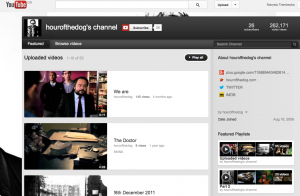
FULL TRANSCRIPT
Hi this is Marysia for loveyourcreativity.com, this week’s interview is with Kenneth Collard. Ken is not only a friend of mine but a real life working actor. Recent film credits include Albert Nobbs and Anna Karenina and on television he’s all over it from Skins, to The Borgias, Cuckoo. He’s done some forty-five or fifty commercials over the past 10 years as well. He really gives some great advice the big takeaways, “you’ve got to come from a place you’ve known you can make a living out of this”.
This is really inspiring. I also spent a lot of time asking him how to basically do more television and film. Hope you all enjoy.
Marysia: Hello, Ken
Ken: Hello, Marysia.
Marysia: This is Marysia for loveyourcreativity and I’m with Ken Collard, who’s a friend of mine and an actor. I do talk about you to the other actor friends of mine particular when they’re having problems not working. I said “you need to meet Ken, he’s a proper working actor.” What are you working on at the moment?
Ken: I’m working on two projects at the moment. One is a film called The Fitzroy. We’ve done the first main principal photography, finished that last week. We have to pick up in a few days or the end of the month. I’m also working on new tricks for the BBC. Those are my two projects at the moment, just waiting to hear on a third if I could squeeze that in and possibly more after that.
Marysia: You’re in Cuckoo as well. Are they doing the 2nd series of that now?
Ken: Yeah. The 2nd series was commissioned quite early on; the difficulty always is trying to get everyone’s availability. So yeah, in principal, this is the 2nd series. It ran about September-October, we stopped filming on that but it really depends on some folks availability, if they can work from September-October then that’s fantastic. Andy’s waiting to hear on the pilot, then fox gets commissioned for a series if it does then we’ll shoot on that time so we can make even more. The idea is around September or October.
Marysia: When I spoke to you recently you were doing something for channel 4 trying to look at script for the next day for something else. I know myself I kind of get busy but I don’t get busy like you get busy. How do you feel that you’re a working actor now? Is it a kind of luck? Is it hard work? Is it a bit of both?
Ken: I think that’s the eternal question is to ask any actor about work. The starting point is it’s absolutely possible there’s no reason why if you’re half decent in what you do then cannot work. As an actor there’s no reason why you shouldn’t. I’ve always understood the percentage is 95% of the actors are not working. I remember about 13 years ago I kind of made that decision but there’s no reason whatsoever why I shouldn’t be in that 5% rather than the 95%. I kind of set in a journey to change that. So the starting point always is that it’s possible there’s no reason why you can’t earn a decent living on what you do and what you love. That’s where you start, you cultivate that belief and that desire also and that’s your starting point.
Marysia: I like that because it means that the actions that you take from that place are far more positive, aren’t they?
Ken: Yeah. Also to understand, it’s tough, it’s very tough. It’s very difficult trying to get work and then of course when you get work that’s a whole new set of challenges, isn’t it? It’s about broadening your capacity and going deeper than you have before. It’ll bring you something wonderful than you ever had. It’s never easy. I’m not saying it’s not joyful or anything, of course it is, you know, but if you strive to create something amazing, it will always be challenging and that’s a good thing. A challenge will make you raise your game. If you don’t use that challenge then it comes with a painful process. I think also for women especially as actors it’s even harder, because for every five male parts there’s only one female part. The odds are higher against you but the point is that it is possible and that’s your starting point. To be clear, it’s difficult but I think you’re gonna enter into it thinking it’s not. It’s kind of deluded, it’s the reality, it is tough and possible, and that’s what you start with.
Marysia: So if you have like a fallow period, do you just keep reminding yourself that this is possible and just keep doing things to keep yourself moving forward? Or is there something maybe you say, do or think about? Do you have some great advice, for example? I know someone would say “I can do this.” Simon Callow said to me once “keep on trucking”, which I always remember actually because I ask him for advice about moving forward, we were at dinner. He said “keep on tracking” it seems to be his ideal forward movement, even when it’s quiet or…
Ken: There’s a great encouragement, actually. Let’s see if I’ve got it here on my phone. I think sometimes it’s a… you really have to grip your teeth and get on with it. I think there are times when it’s good and there are times when it’s not so good and that’s the reality of the business. It’s the persistence to keep going through it that actually brings out results. I’ll just see if I could find it.
This is actually from Daisuku Ikeda who’s a Japanese gentleman, quite an incredible human being. He’s the leader of this Buddhist organization called Soka Gakkai. It’s a people’s movement of change. They always encourage us to live with your highest potential.
He wrote
“Press on, nothing in the world can take the place of persistence. Talent will not; nothing is more common than unsuccessful people with talent. Genius will not; unrewarded genius is almost a proverb. Education will not; the world is full of educated derelicts. Perseverance and determination alone are omnipotent.”
Big word at the end. I think that’s so true because I know the most talented creatives that don’t work. It’s not enough to have this incredible talent. It’s persistence. You got to keep going, which is quite difficult at times but that is how you a get a breakthrough. You develop a very thick skin, you have to.
Marysia: I love that quote, I just read it this weekend. I’ve had so much negativity from the teachers that I had in the past about my singing. A few other people really liked it. If I listened to them I wouldn’t have stood in on the Royal Festiva Hall balcony singing with thousands of people bringing them in. You know, you sometimes listen to the other voices, you have to listen and learn but equally you have to go I have this dream and I am gonna absolutely go for it. I’m actually bullheaded; I think that’s probably my greatest talent, actually.
Ken: I think it’s hard to find that determination to carry on. It’s easy for you to sit here, read that out and say yes, you need persistence and determination and it’s fine but the reality is at this moment when you’re just banging your head and you need the encouragement to continue. The thing is you do find it and actually it’s ok to think sometimes, you know what I’ve had enough or to be in those places, it’s absolutely fine. As what I’m saying it’s a tough journey. The important thing is what you do once you’re in those places. Feel it and experience it but move on. There’s many ways, isn’t it? I think it’s important that you surround yourself with good friends, good people, it will encourage you to keep going and not to give up on that.
Marysia: Yeah and that’s why I’ve been doing loveyourcreativity. Sometimes people around you don’t understand what you’re trying to do. They love you but they don’t get why you want to sing, act, write or paint. They say “You should go out and make money or get a more traditional role” so I think it’s good to have any place you can kind of go give yourself guidance to move on. So I set myself a goal of doing some telly in six months months, by November 18. Now I want to ask you, if I was gonna do some telly, given I am trained and have been doing lots of shorts what would you say to me about getting on to do more work that way for example?
Ken: I think everything starts with a decision, doesn’t it? I think as human beings we’re a lot more powerful and we allow ourselves to believe. The starting point always in life is to make a decision, life responds to decision. If it’s uncertainty then life responds to that uncertainty. So make decisions or make goals to work you towards something. You can just measure where you’re going throughout the year. So how? Right about 2002 I decided to stop doing theatre and focus or try and carve out some kind of path or career in television and film. That’s where I kind of saw my future. I think there’s practical stuff that you need to get in place. I think it’s important, this is my feelings, it’s absolutely crucial that you have a real showreel. I think it’s important, if you have not done much telly or any telly there’s a good chance that the casting director may not know you or seen your work. They want to know and see your work, the great way to do that is a showreel.
Marysia: I’ve got some showreel but my agent hates it so therefore I’ve gone ok. So I’ doing lots of shorts, which I’m waiting for those to come through.
Amy Hubbard on Spotlight – great insights
Amy Hubbard
Ken: There’s a great little piece on Spotlight today as in the actor’s directory online for Amy Hubbard, amazing casting director, really wonderful person as well and they selected three showreels at random and she had a look at them and kind of did an appraisal on each of the three. On spotlight, you can view the showreel, you can look at the points she’s making. Showreel has to be brilliant because this is your introduction maybe for the first time to somebody. So it has to be brilliant because that’s how their opinion of you is going be formed on what they see. So it’s got to be brilliant. You shouldn’t accept anything less, this is about you and building your brand so it’s brilliant that you can absolutely make it and also that it’s short. I think Amy suggested three minutes which I think is good. So it’s crucial to get the showreel and it’s got to be brilliant in terms of filming scenes, yeah, if it looks absolutely amazing then I’m sure that’s fine. The stuff that you chose from the short films you’ve done are great. It’s a good way to build confidence in front of the lens and also to get a reel. Make sure that whatever you show is brilliant. You’ve got that three-minute opportunity or 1 minute. For them to say yes let’s bring ‘em in, I don’t know this person but let’s bring ‘em in.
Marysia: Yeah because you’ve already been at catch twenty-two, is my stuff good enough or no? But then you’d go you have to find ways to determine. Well I’m gonna find a way breakthrough this because…
Ken: Yeah it’s good to get shows what else can you do to get to the telly? Like I said it depends if you’re represented with an agent or not. If you have an agent, it’s good to have that meeting to talk things like this is where I wan to go and what can we do to make that happen. Also be clear, television is quite broad. Specifically when you say television, what? Be aware of the kind of work you want to do. With the stuff you see on TV, get to know the producers or director, who’s the casting director, those are the people you really want to be meeting if that’s the kind of work you want to do. So again you have that conversation with your agent also. I think if you don’t have an agent then that’s slightly different. Again, get a showreel, there’s no reason why you cant drop a letter or stuff off to the casting director and say I really love the kind of work you are doing, this is my work, we’ve not met before, if you get a chance please do have a look and maybe follow up in a couple of weeks. Do it respectively because they get a thousand of those every week.
Marysia: I obviously do more theatre stuff, and a casting director will maybe turn up maybe every two shows. Even the fact that you get 1 casting director to turn up there’s always of course a celebration. Your route was obviously an agent and did you politely harass the casting director and the directors? Did you contact directors directly? Did you move an effort through your agent? Did you do a lot of your work on the side of your agent when you were starting? I know you’re slightly different now because people know your work.
Ken: When I left drama school, I went straight to the West End and then a tour for 11 months, then after eleven months when I stopped touring I got a commercial agent and that wasn’t so great. For about a year we sat there and not much. it was a bit awkward. I left them after about a year and then went to another commercial agent which was a step up in terms of that that relationship but then I quit after a year and a half. Then I went to cooperative, I was there for ten years. At that point it was a fantastic thing to do. I learned about business and negotiating. I learned about contracts. I learned who the casting directors were, who the companies were. It was a fantastic way to learn about the business. It’s not a perfect representation for everybody. There are parts in your career when it’s better not to go there and there are times when it’s good to go there. You have to make that choice but I ended being there for ten years. I managed to build up a half decent CV. Then left and went back to the commercial side, to the cooperative side. I went to an agent, I had a terrible track record, I was only there for a year. It wasn’t the kind of representation I wanted. I moved and I’ve been with the current agent for three years and they’re great.
Marysia: Can I ask who?
Ken: Yeah with Debi Allen Associates. daamanagement.co.uk They’re very, very good. So I was in the cooperative and I made that decision to move away from theatre and started television. The first thing you know when you’re in a cooperative is you see what’s coming in so you know what’s being cast. The agency were making a big emphasis on submitting me for that kind of work and at the same time build up a showreel through short films or anything that I could so that they could see my work. Very slowly over a few years I started to get meetings then the work came through. If you don’t have an agent then how do you do… again, do your research, weigh who you wan to work with and what kind of work you want to do. If you’re doing a theatre show then fantastic, if you’re gonna write casting directors you said you’ve got something to tell them. It’s not like “hi, I’m stalking again,” just write them and say come and have a look at my show.
Marysia: I’ve done three shorts in the last three weeks, two more this month and I’m going to do another in like a low-budget feature. I’ve just done a narration for Pedogree Poutltry documentary, so cute. I’ve actually got enough to write a letter, I’ve done enough things but I’m going to be waiting for the showreel but then I’m like well, as we know editing can take different. I think I should just need to do the right thing. I should just sit there and do as you say and get writing again.
Ken: But I think also it’s a lot stronger if it comes from your agent. So if you have an agent then well you’re paying them and there’s a function that they do, one of that is to be able to write for you. It’s just a lot stronger if it’s from your agent. I think if you get to a certain level in your work you probably end up writing letters, and it’s more and more of the agent doing that, it ends up stronger. Sometimes if the actor’s writing many letters and they try to do it in two different ways. It’s good to have that conversation with the agents and say look, this is what I wan to do, what do you think? What’s gonna be the most effective? What’s your relationship with this casting director? Is it possible if you could make a call to get me in to a general, just a meeting, I love that kind of work they’re doing. To get your agent to do your work because that’s what you pay your commission for when the work comes through.
Marysia: In that case, so I might write a letter when I get the showreel then get him on the phone to do the next… I think I’m gonna watch more telly. I know we’ve talked about you kind of picking yourself up back again. I know your very busy, you got social, your life, you’ve got your project, how do you keeps all the balls in the air? Or do you focus at one thing at a time? Sometimes you can’t, can you?
Ken: I think it depends on the person, doesn’t it? I think I’m kind of my best when I’m busy but that’s not for everybody. Sometimes it’s a bit overwhelming when you’ve got lots of meeting. You get a script through one afternoon then you’ve got to go, be off the page and ten pages by the next day but you do it because that’s what you do, that’s what you get paid to do. I’m having a meeting for BBC, not gonna say what the project was and the script came through on something like a Thursday lunchtime and it was sixty pages long and it says can you be off page by tomorrow ten o’clock meeting. I think what makes amazing people is when they are in a situation and then make it happen. You can’t think “Oh they ring me up this late”, that’s what the business , so make it work. So I just did the best I could up to one-thirty in the morning, working on the script making choices thinking well look the meeting is probably gonna be for fifteen minutes they’re not gonna do sixteen pages of script. Prioritize it, what you think they’re gonna do then work on it, get ass much off the page and find the kind of character and go there having one over yourself. It was the most amazing meeting.
Marysia: How do you prepare for an audition especially in a situation where you’re pretty much character-focused, any tips you can give us?
Ken: Again it’s different. The thing is you get a script and you have to read sixty pages of script and then from that sometimes you get the brief that says choose any scene you want or prepare your scene. So in the short space of time, I have to read. On top of everything else there is sixty-page script or a one-hundred-page script and get ‘em off the scenes and get them off the page I don’t know if it’s character-focused. The first thing is trying to get through the line of where they start or where they are or where they end up. I think if you can get that overview and the next stage is to kind of understand who this person is and bring something of yourself to it and make it live. The job I’m doing at the moment, I was working on this film and again it didn’t finish until nine-thirty at night and that’s sort of back here and again sometimes it means working until 1 in the morning and trying to get your head rounded. Actually that’s what it takes that pays off. I think sometimes British actors can be quite lazy in going to a meeting and having not done that groundwork. In America, it’s very different. Each audition is a precious opportunity, it really is. I feel, I try and I always succeed that I treat it as such. You have three or five minutes to be brilliant. It’s important that preparation before hand, it varies on different people on how you prepare. It’s important to be off the page and come with ideas as well. Also, be prepared to throw everything at the window and start again when you’re in the room. There’s actually a technique. You see a pool of actors that book commercials all the time, you see them on the circuit. I was like that for ten years; I’ve probably done about forty-five or fifty commercials. You understand there’s a kind of technique to it and you get into that frame of mind. Well that’s another thing with commercial castings. Just to finish really what it is, the point is just absolute persistence and cultivate that belief in yourself that you can make this happen and that you can be successful and that you are in a brilliant actor and you are something and you should be treated as such. Cultivate that belief and surround yourself with good friends and never give up on it. See it to its natural conclusion.
Marysia: That’s a good way to finish. Thank you, Ken.
Ken: Thank you, Marysia. See you again.
Marysia: So I hope you enjoyed that, I certainly did. You can get a hold of Ken on his website hourofthedog.com. I hope you move forward from this feeling inspired. Thanks for listening. This is Marysia at loveyourcreativity. Another interview coming is with Ryan James Lark who’s a fantastic who has written “Be your own publicist.” I’m going to talk to him about how we as creatives can build our brand and market ourselves. It’s really good stuff there.
If you liked the podcast it would be nice if you could rate it for me on iTunes as it helps to get other people listening. Thanks!
Contact Ken via Twitter @Kennethcollard or his website, Ken Collard
Ken’s Youtube Channel Hour of the Dog here
Love Your Creativity.com is dedicated to all creatives trying to make great work and make a living from it.
Whether you are a full time painter or a 40 hours a week office administrator who sings on the side, this is to encourage you to keep creating and make the world a better place, one song, poem, piece of art at a time.
I am currently mid writing a series of blogs on dreaming, creating and making money by putting on creative events and showcasing your work in the arts.
About Marysia and Love Your Creativity
I blog and podcast at least three times a week on creativity and techniques to get your art on.
Whether you are a musician, an actor or a choreographer I endeavour to make Love Your Creativity a place to come for inspiration and motivation.
I podcast interviews and a weekly newsletter via podcast with a 13 minute task.
The dance music I use Londontown, is a track I wrote years ago and Andrew Hyde and I are currently working on 3 remixes of it. We will be releasing it very soon as a dance track, dub step mix and bar mix. I figured if I was going to podcast I may as well use my own tune! The other bits of music are me, my inspiration and whatever instrument is lying around!!.
Just go the website for the blog and you can subscribe there via your email if you dont want to miss a post. Equally please subscribe to the iTunes Channel to get the new podcasts without any more effort on your part 😉
Also Stitcher Radio http://stitcher.com/s?fid=33657&refid=stpr
Tags: 2005 singles, Aerosmith, Albert Nobbs, America, Amy Hubbard, Andrew Hyde, Andy, Anna Karenina, Back Stage, BBC, Daisaku Ikeda, Daisuku Ikeda, Debi Allen Associates., director, dream and take action, fox, Interview, It's 'Show Business' not 'Show Art', Ken Collard, Ken Collard Ken, Kenneth Collard, Marysia, Nichiren Buddhists, office administrator, Pedogree Poutltry, Podcast, President, Principal, Royal Festiva Hall, Ryan James Lark, SGI, Simon Callow, Soka Gakkai, stalking, West End













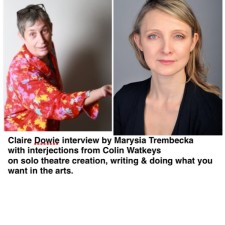

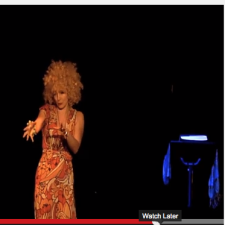
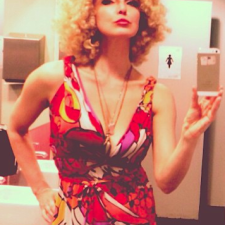
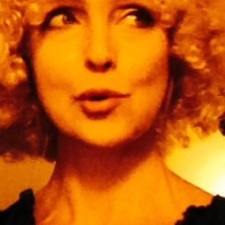






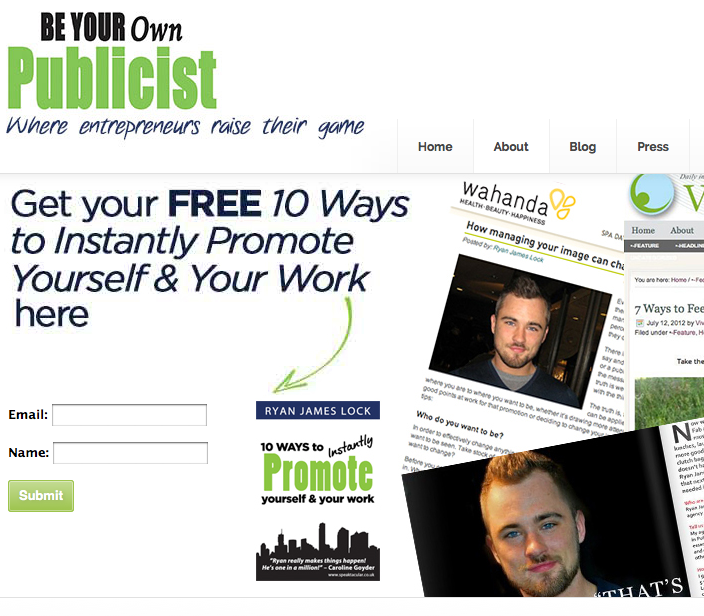
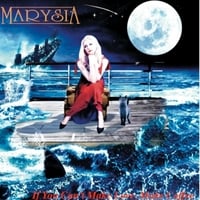










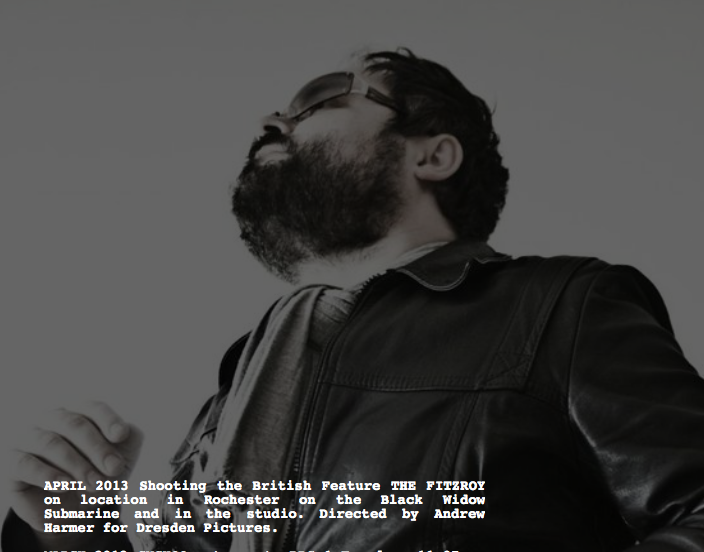
Leave a Reply